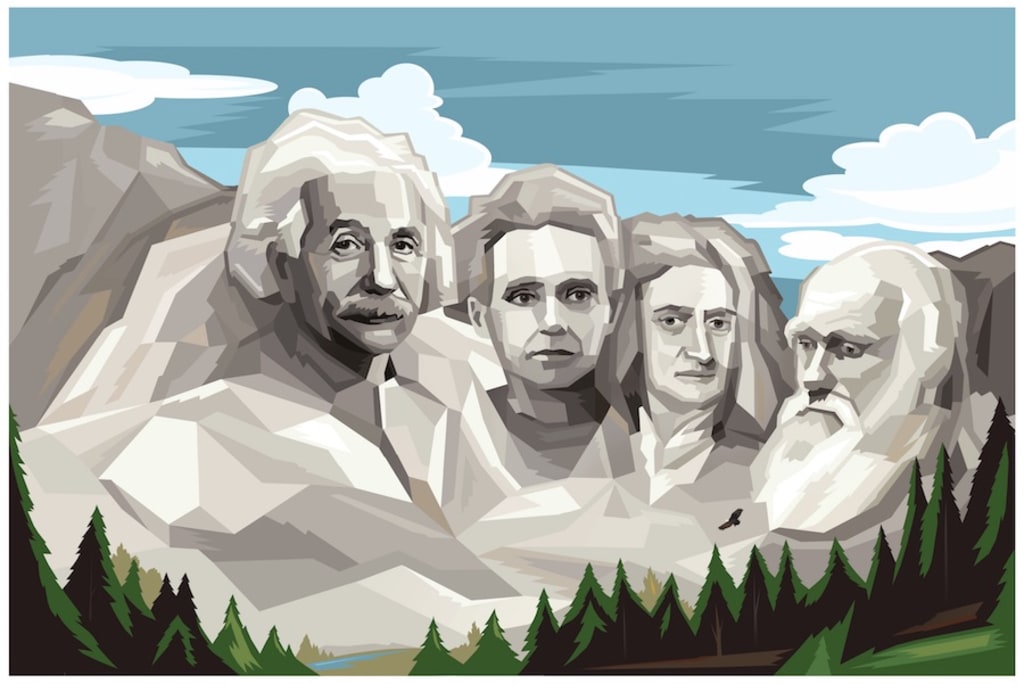Top 10 Scientists in the World and Their Gadgets
From Stephen Hawking's speech-generating device to Marie Curie's X-ray machine, these scientists have used a wide range of gadgets to make.

''Top 10 Scientists in the World and Their Gadgets''
The world is constantly changing, and the work of scientists plays a crucial role in shaping our understanding of it. From exploring the depths of space to unlocking the mysteries of the human body, scientists use a wide range of gadgets and tools to make their groundbreaking discoveries. In this article, we will take a look at the top 10 scientists in the world and the gadgets they use.
Stephen Hawking
Stephen Hawking was a world-renowned physicist, cosmologist, and author. Despite being diagnosed with ALS, he continued to work and contribute to the field of physics until his passing in 2018. Hawking used a range of gadgets to communicate, including a speech-generating device and a custom-built wheelchair.
Neil deGrasse Tyson
Neil deGrasse Tyson is an astrophysicist, author, and science communicator. He is known for his work in popularizing science through books, TV shows, and podcasts. Tyson uses a range of gadgets in his work, including telescopes, smartphones, and digital cameras.
Marie Curie
Marie Curie was a physicist and chemist who made groundbreaking contributions to the field of radioactivity. She was the first woman to win a Nobel Prize and the first person to win two Nobel Prizes in different fields. Curie used a range of gadgets in her work, including X-ray machines, electrometers, and radium detectors.
Albert Einstein
Albert Einstein is widely regarded as one of the most influential scientists of the 20th century. His work on relativity and quantum mechanics revolutionized the field of physics. Einstein used a range of gadgets in his work, including a pocket compass, a watch, and a blackboard.
Jane Goodall
Jane Goodall is a primatologist and conservationist who has spent over 50 years studying chimpanzees in their natural habitat. Goodall uses a range of gadgets in her work, including binoculars, cameras, and GPS trackers.
Richard Feynman
Richard Feynman was a physicist and Nobel laureate known for his work on quantum mechanics and particle physics. Feynman used a range of gadgets in his work, including calculators, slide rules, and paper notebooks.
Ada Lovelace
Ada Lovelace was a mathematician and computer programmer who is known for her work on Charles Babbage's analytical engine, a mechanical computer. Lovelace used a range of gadgets in her work, including mechanical calculators and punch cards.
Stephen Wolfram
Stephen Wolfram is a physicist, mathematician, and computer scientist who is known for his work on computational science and the development of Wolfram Mathematica, a computational software program. Wolfram uses a range of gadgets in his work, including computers, tablets, and smartphones.
Elizabeth Holmes
Elizabeth Holmes is a biochemist and entrepreneur who founded Theranos, a biotech company that aimed to revolutionize blood testing. Holmes used a range of gadgets in her work, including blood testing machines and lab equipment.
Bill Nye
Bill Nye is a science educator, engineer, and TV host. He is known for his work on the TV show Bill Nye the Science Guy and for his advocacy for science education. Nye uses a range of gadgets in his work, including microscopes, telescopes, and digital cameras.
Who is father of science?
Galileo Galilei ,
Albert Einstein called Galileo the “father of modern science.” Galileo Galilei was born on February 15, 1564, in Pisa, Italy but lived in Florence, Italy for most of his childhood. His father was Vincenzo Galilei, an accomplished Florentine mathematician, and musician.
In conclusion, these are the top 10 scientists in the world and the gadgets they use. From Stephen Hawking's speech-generating device to Marie Curie's X-ray machine, these scientists have used a wide range of gadgets to make.





Comments
There are no comments for this story
Be the first to respond and start the conversation.